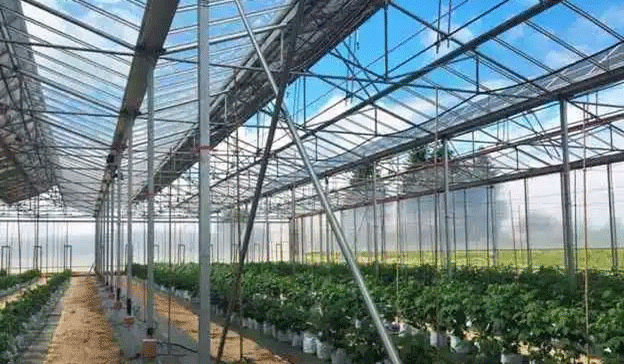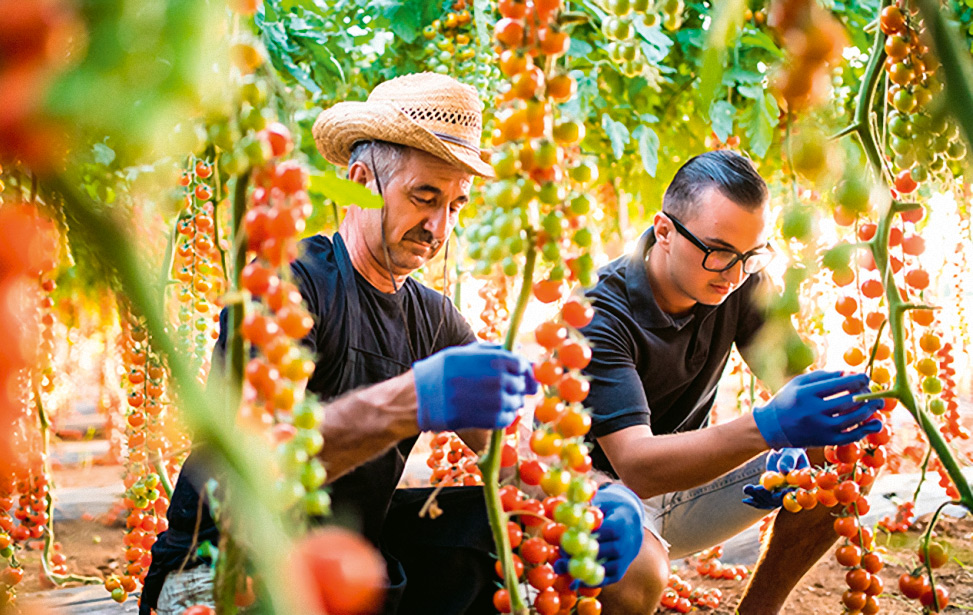Mango, a high-value horticultural product with a booming export market, faces increasing demand. However, farmers often grapple with limited land availability and environmental challenges. Utilizing greenhouse technology allows for optimal land use, enabling the cultivation of mangoes year-round under controlled conditions. By incorporating solar power and AI, farmers can maximize the benefits of greenhouse cultivation, ensuring higher yields and better fruit quality.
Advantages of Solar Power (PLTS)
Solar power systems harness sunlight to generate electricity, providing numerous advantages for farmers:
- Cost Reduction: Implementing PLTS significantly lowers energy costs by reducing reliance on expensive fossil fuels. This is particularly beneficial for farmers seeking to optimize operational expenses related to electricity usage.
- Sustainability: Solar energy is renewable and environmentally friendly, supporting sustainable farming practices. This transition not only decreases carbon footprints but also aligns with global efforts to combat climate change.
- Climate Control: The electricity generated from solar cells can power climate monitoring and control systems within greenhouses. This ensures optimal conditions for mango growth, such as regulating temperature, humidity, and light exposure.
- Automation and Efficiency: Solar energy facilitates automation in agricultural processes, including irrigation and fertilization systems. This automation increases efficiency, reduces labor costs, and enhances the overall growth environment for mango plants.
- Long-Term Sustainability: Investing in solar power offers long-term benefits, including reduced energy costs over time and increased resilience to climate variability, allowing farmers to adapt more effectively to changing weather patterns.
The Role of AI in Mango Cultivation
Artificial intelligence enhances agricultural efficiency and effectiveness through various applications:
- Environmental Monitoring: Smart sensors connected to AI systems can monitor real-time environmental parameters like temperature, humidity, and light intensity. This data enables farmers to make informed management decisions.
- Yield Prediction and Disease Detection: AI analyzes agricultural data to forecast yields, optimize watering schedules, and detect potential diseases early. Early identification allows farmers to address issues before they escalate, ensuring healthier crops.
- Resource Optimization: Automation of irrigation and fertilization processes tailored to the specific needs of mango plants can significantly reduce resource waste. This approach not only saves time but also promotes sustainable use of inputs.
Notable AI Applications in Mango Cultivation
- Plantix: This AI-powered app enables farmers to diagnose plant diseases by uploading photos, providing instant recommendations for treatment.
- AgriAI: Assists farmers in monitoring soil and plant conditions, offering actionable insights for fertilization and pest management.
- CropIn: This platform employs AI for real-time crop monitoring and data analysis, helping farmers plan agricultural activities to enhance yields.
- FieldSense: Combines sensors and AI to assess soil moisture and weather conditions, aiding farmers in making timely irrigation decisions.
- Taranis: Utilizes image processing and drones to visually monitor plant health, identifying issues before they become significant problems.
By integrating PLTS and AI in mango cultivation, farmers can enhance productivity, resulting in higher-quality fruit and increased harvests.
Challenges to Consider
While the integration of solar power and AI presents many advantages, some challenges must be addressed:
- Initial Investment: The upfront costs associated with installing PLTS and AI systems can be a barrier, particularly for smallholder farmers.
- Technical Expertise: Utilizing these technologies requires a certain level of technical knowledge, which may not be readily available to all farmers.
- Weather Dependency: Solar power generation is contingent on sunny weather, posing challenges in regions with frequent cloud cover.
- Maintenance Requirements: Ongoing maintenance of solar and AI systems can incur additional costs, which may affect profitability.
- Environmental Impact: The production and disposal of electronic devices used in these technologies can have environmental consequences that need consideration.
The combination of solar power and AI in greenhouse mango cultivation offers a pathway to modernize agricultural practices, addressing challenges related to land availability, energy costs, and environmental sustainability. While challenges exist, the potential benefits of improved productivity, enhanced crop quality, and a more sustainable farming system make this approach compelling. By embracing innovation, farmers can contribute to food security while ensuring the preservation of natural resources for future generations.











